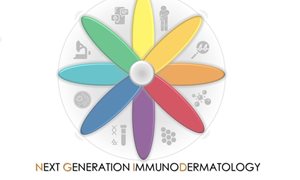
In people with a suspicious nodule in the thyroid gland, a scan using radioactive sugar can very reliably rule out thyroid cancer. The scan thus prevents 40% of the diagnostic operations for benign nodules. These conclusions are based on research in fifteen hospitals, led by Radboud University Medical Center and Leiden University Medical Center.
Nodules in the thyroid gland are common. About 7% of the Dutch population feels a nodule in the thyroid gland sometime during their lives. Only one in twenty of these nodules is malignant. With 900 cases per year in the Netherlands, thyroid cancer is a rare type of cancer. The first step towards a diagnosis is an ultrasound scan combined with a biopsy. This shows whether the nodule is benign or malignant in three-quarters of the cases.
But in a quarter of the cases, the characteristics of the nodule remain unclear. "Then, the patient will undergo a diagnostic operation," says Lisanne de Koster, physician-researcher at the Radboudumc. "This shows that only a quarter of those operated nodules are malignant. As such, the surgery had not been necessary in three quarters of the patients. This has disadvantages, such as a conspicuous scar and a risk of complications. For example, some patients develop a disorder of the thyroid function, requiring life-long medication."
Suspicious sugar eaters
The researchers wanted to reduce the number of unnecessary surgeries. "In the EfFECTS study, we investigated whether we could improve diagnostics even before surgery," explains De Koster. "We used a scan with radioactive sugar, a so-called FDG-PET/CT scan. The idea is that malignant tumors absorb much more sugar than normal tissue, because they are very active and use a lot of energy. Thanks to the radioactive label, we can use the PET scanner to see exactly where the sugar goes. If sugar uptake is low, the thyroid nodule is no longer suspicious and almost certainly benign."
This study at fifteen hospitals involved 132 patients who were eligible for diagnostic thyroid surgery. They all received a scan with radioactive sugar. Then they were drawn into two groups. The control group received the operation regardless of the scan result, in accordance with the current guideline. In the other group, the scan result determined whether surgery was necessary. If the sugar uptake in the nodule was high, surgery was performed, but not if the sugar uptake was low. The nodule was then monitored with ultrasound only. The fact that none of these nodules had grown after a year confirms that they consisted of benign tissue.
Less unnecessary surgery
The study shows that the sugar scan reliably rules out that a nodule contains thyroid cancer, with 95% certainty. Therefore, with a low sugar uptake on the scan, it is safe not to operate. The sugar scan is less accurate at confirming thyroid cancer: nodules with a high sugar uptake sometimes turned out to be benign after the surgery. As a result, the scan could not prevent surgery in all benign nodules. The study shows that the sugar scan leads to 40% fewer operations in benign nodules. That would mean a few hundred less unnecessary operations per year in the Netherlands alone.
Some patients wanted to undergo surgery despite a low sugar uptake in the nodule, because they were bothered by a large nodule, for example when swallowing. De Koster: "These patients all had a benign nodule. This shows that it is very important that the doctor and the patient discuss the treatment goal beforehand. If, besides the risk of cancer, there is another good reason for thyroid surgery, it is better to skip the sugar scan and opt for surgery to save healthcare costs."
Update of the guideline
"A very nice result," thinks nuclear medicine expert Dennis Vriens of LUMC. "In addition to the effectiveness of the scan, we have also shown that the healthcare costs decrease. An FDG-PET/CT scan is not cheap, but it still saves 7,000 euros per patient compared to an operation with the associated hospitalization, medical checks and possible complications. That is why we are currently working on including the scan in the national guideline for thyroid diagnostics."
About the publications
This study was published in European Journal of Nuclear Medicine and Molecular Imaging:
[18F]FDG-PET/CT to prevent futile surgery in indeterminate thyroid nodules: a blinded, randomized controlled multicentre trial. Elizabeth J. de Koster, Lioe-Fee de Geus-Oei, Adrienne H. Brouwers, Eveline W. C. M. van Dam, Lioe-Ting Dijkhorst-Oei, Adriana C. H. van Engen-van Grunsven, Wilbert B. van den Hout, Tamira K. Klooker, Romana T. Netea-Maier, Marieke Snel, Wim J. G. Oyen, Dennis Vriens.
Quantitative classification and radiomics of [18F]FDG-PET/CT in indeterminate thyroid nodules. Elizabeth J. de Koster, Wyanne A. Noortman, Jacob M. Mostert, Jan Booij, Catherine B. Brouwer, Bart de Keizer, John M. H. de Klerk, Wim J. G. Oyen, Floris H. P. van Velden, Lioe-Fee de Geus-Oei, Dennis Vriens.
-
Want to know more about these subjects? Click on the buttons below for more news.
More information
Annemarie Eek

wetenschapsvoorlichter
Related news items

Willem Mulder appointed professor of Precision Medicine
4 October 2022Willem Mulder has been appointed professor of Precision Medicine at Radboud university medical center / Radboud University. He develops new drugs for immunotherapy against cancer, inflammation, rejection reactions and infectious diseases.
go to page
Immune cell becomes tumor cell by a molecular switch to higher lipid uptake Protein CD37 plays an important role in the development and prognosis of B-cell lymphoma
19 September 2022When B cells of the immune system no longer have the protein CD37 on their surface, they can change into tumor cells that form blood cancer. CD37 inhibits fat uptake in B cells. If this protein is missing, a tumor cell absorbs much more fat and therefore grows faster.
go to page
Rubicon grants awarded to three RIMLS researchers
19 April 2022Three researchers have received Rubicon funding from NWO/ZonMw. This will enable Elke Muntjewerff, Laura de Vries and Laurens van de Wiel to do research at a foreign research institute for the next two years.
go to page
Large NWA ORC grant awarded for national skin research: Next Generation ImmunoDermatology
23 March 2022Research for better treatment methods for chronic skin diseases.
go to page
